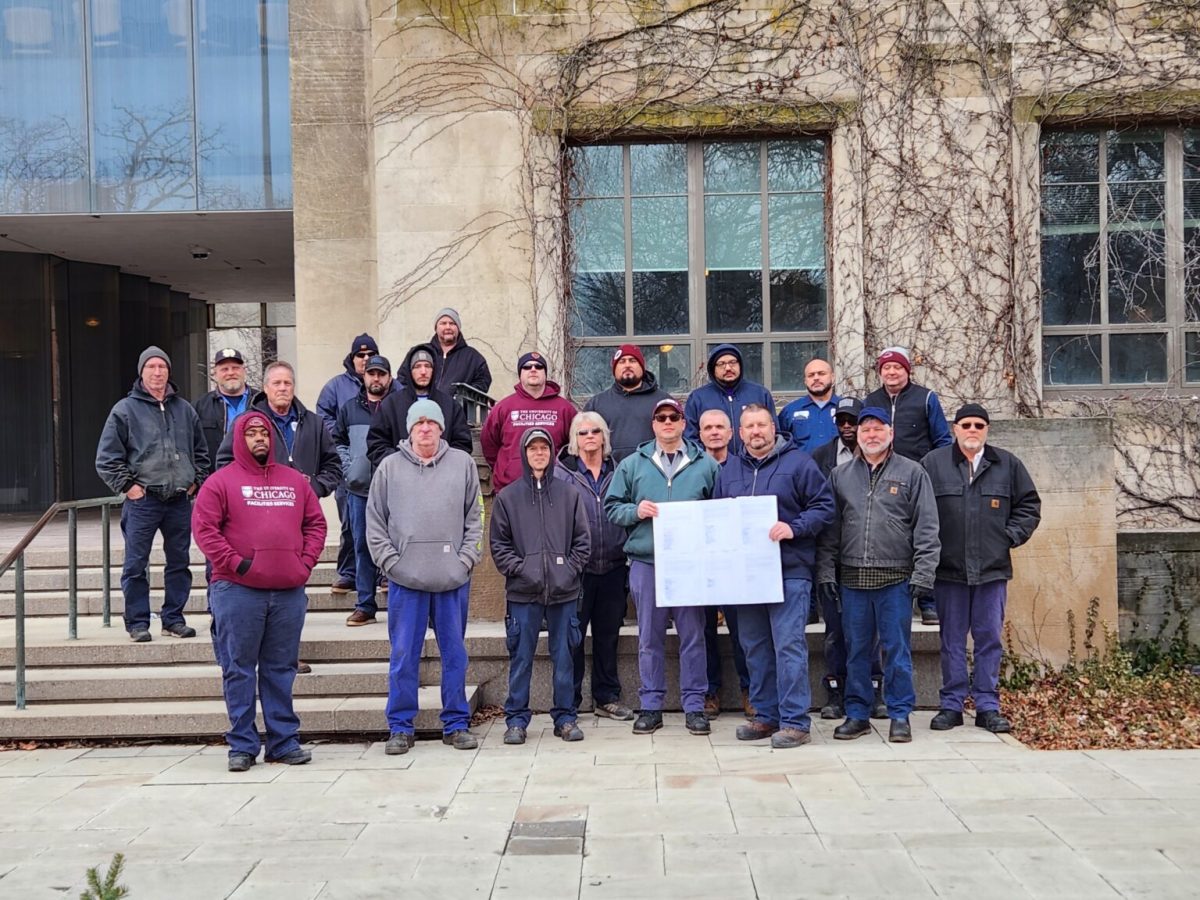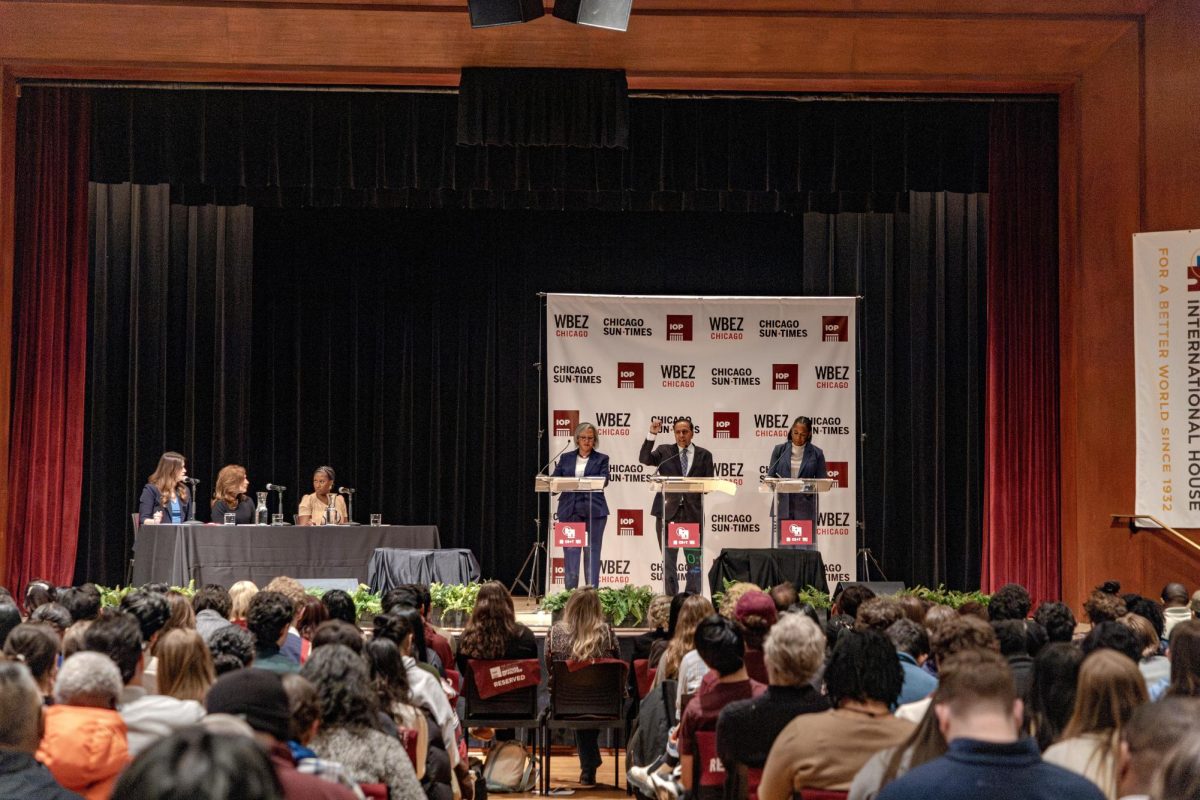Members of Service Employees International Union (SEIU) Local 73, the union representing skilled facilities workers on campus, ratified a new contract with the University on March 12.
The agreement came after protracted negotiations that lasted four months after the union’s previous contract expired. SEIU leaders had raised concerns about persistent staffing challenges and uncompetitive wages. Last month, members of the union delivered a petition to University President Paul Alivisatos expressing willingness to strike if their conditions were not met.
“We had a strong majority ratify this contract with our members,” Joe Pruim, SEIU Local 73 UChicago unit president, told the Maroon. “I don’t think we have had a great relationship between the union and the University in previous years, but I believe that we’re really starting to put [together] a strong foundation to build on with the University.”
According to the union, the contract offers members 13.25 percent wage increases over four years, the “highest increase of other unions so far on campus.” Representatives for the University did not respond to a question seeking to confirm that number. Other provisions in the new contract offered prescription safety glasses for workers and a paid holiday on Juneteenth.
The union also secured an option for workers to forgo their 30-minute unpaid lunches and instead work for uninterrupted eight-hour shifts. Building refrigeration engineer Tom Wright, the union steward for the Booth School of Business and a member of Local 73’s bargaining committee, told the Maroon that the possibility of an uninterrupted eight-hour workday was a top ask among members.
“That extra 30 minutes at the end of your day is a lot when you have to face traffic, and there are members that have childcare issues, that they’re unable to [pick] up their kids sooner,” Wright said. “It’s two and a half hours a week. Trying to put some quality of life back to the members was important to us.”
The contract did not assuage all of the union’s long-term concerns about staffing and retention. Funding for worker training, a sticking point in negotiations, did not make it into the contract, though the parties agreed to create a committee to explore the issue.
“It’s going to be a work in progress, but at least we have the dialogue with them to build on something in the coming future,” Wright said. The contract also does not offer workers long-term disability insurance, another union demand.
“It’s the best contract I’ve seen since I’ve been here, and I’ve been here 18 years,” Wright said. “You know, with every negotiation, there’s always concessions, there’s give and take. You just have to build for the future and look towards the future and realize that we may not be where we want to be right now, but we’re going in the right direction.”
Other University employees, including collegiate assistant professors and non-tenure-track faculty, also fall under the Local 73 umbrella but bargain separately from Facilities Services workers. The new contract would apply retroactively from November 1, 2023—when the previous one expired.
“The University is pleased to reach an agreement with SEIU local 73 on the terms of a new four-year contract for approximately 150 employees in Facilities Services,” the University wrote in a statement to the Maroon. “Each labor contract at the University is negotiated separately in good faith, with many terms and conditions of employment subject to discussion in addition to pay rates and increases. We are deeply grateful for the contributions of Facilities Services employees to the work of the University.”
Pruim and Wright cited members’ unity through the negotiations as a major factor in reaching the agreement. “We did a [distributing] flyers in the main quad, and [Graduate Students United] showed up to support us on that as well, and a lot of members took part in that just to get the word out and show our solidarity and our unity,” Wright said. “I think we brought that strength to the table, and I really believe that management took notice of that. I think that they were more receptive to the fact that we are a unified group, and we are willing to fight for what we feel we deserve. Things like that really helped turn the tide in negotiations.”
“A lot of members don’t think that coming out and supporting the solidarity makes a huge impact,” Pruim said. “But a lot of little voices together makes one huge voice.”















